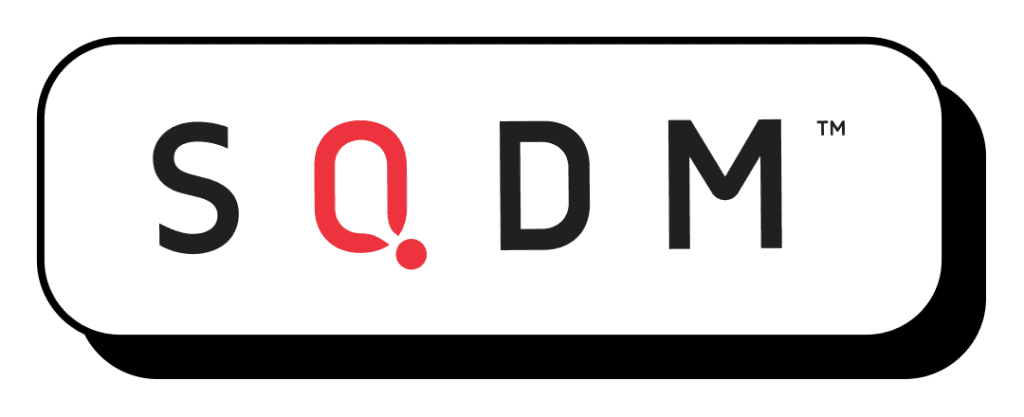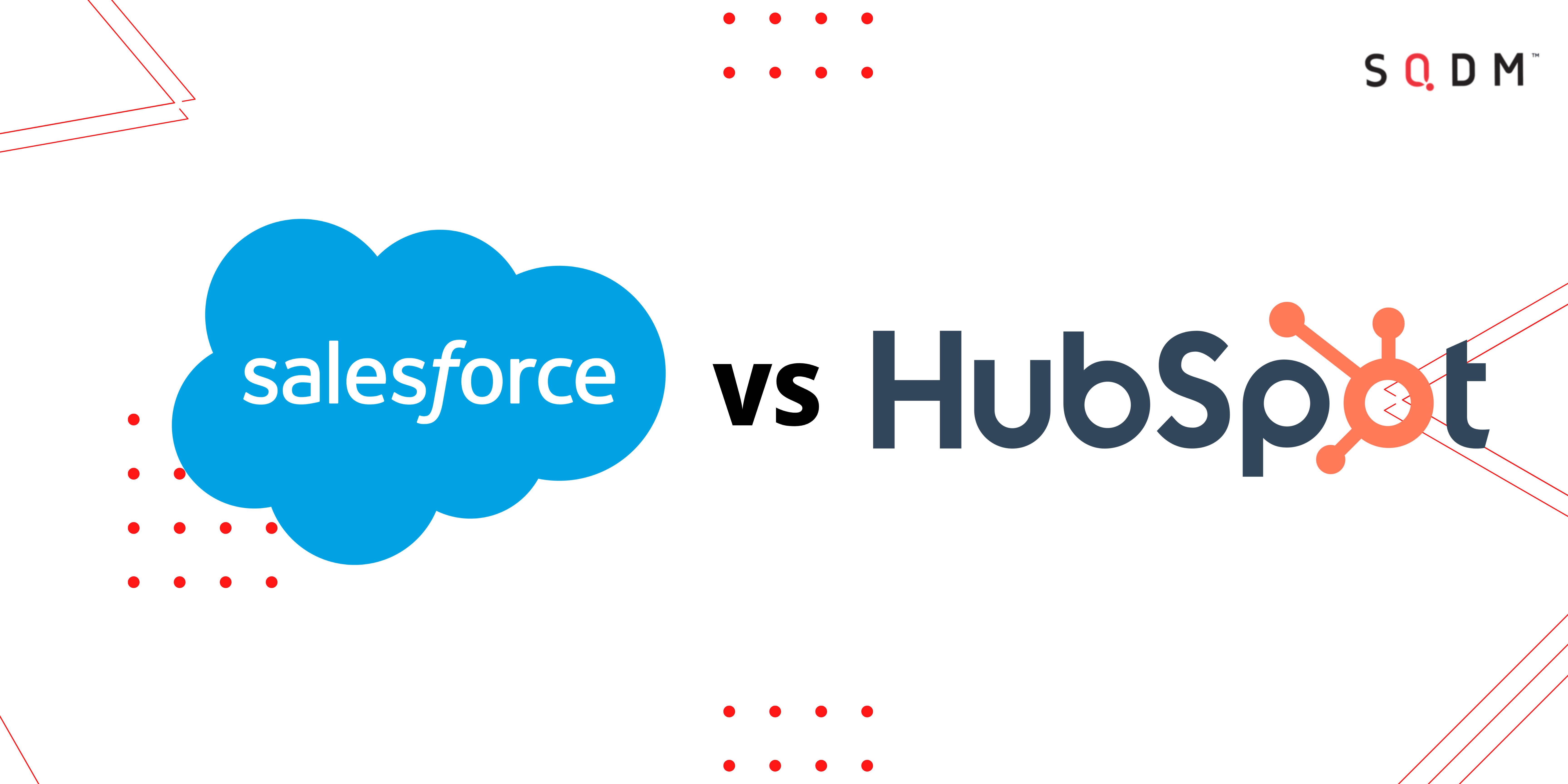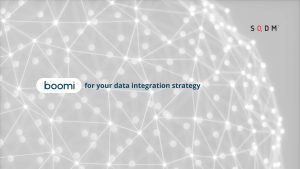In today’s business world, having a customer relationship management (CRM) system in place has become critical to staying competitive and providing an exceptional customer experience. An effective CRM allows companies to organize, automate and synchronize interactions with customers, giving them a holistic view of their needs and preferences. However, with the wide variety of CRM software options available on the market, it can be overwhelming to select the right solution for your business. In this guide, we’ll explore the key steps to choosing a CRM that fits your needs and helps you achieve your business goals.
It is important for any company to find the perfect CRM software that facilitates the marketing automation and other processes. The truth is that the competition is wide, and sometimes it is hard to pick the software that fits with the company.
Salesforce and HubSpot are one of the most popular platforms, since they count with functionalities and the good results that the companies had before the implementation.
That is why we bring to you a comparison of these two big CRM software programs.
To know what are CRM platforms, we recommend you: CRM for companies How implement it?
What are Salesforce and HubSpot?
Salesforce
Salesforce is a management solution, consisting of a digital ecosystem that helps the company to manage the relation with the customers and the internal relations, to offer a different experience to both the customer and the company.
It is specialized in the customer service, sales, marketing and commerce areas, with this software, the members of the staff can access all the information of the customer, supplier or other employees, just with a click.
Salesforce has become a global leader in customer relationship management (CRM) software and has expanded its offerings to include sales, customer service, marketing, e-commerce and more.
Salesforce’s flagship product is its CRM platform, known as Salesforce Customer 360. This platform allows companies to comprehensively manage all interactions with their customers, from lead tracking and sales to customer service and data analytics. In addition, Salesforce offers a wide range of complementary applications and services, such as Salesforce Sales Cloud, Salesforce Service Cloud, Salesforce Marketing Cloud and Salesforce Commerce Cloud, which can be tailored to the specific needs of each company.
One of the main advantages of Salesforce is its cloud approach, which means that all data and applications are stored and accessed via the internet, allowing convenient access from any device with an internet connection. This facilitates collaboration and real-time access to information for sales, marketing and customer service teams, regardless of their location.
HubSpot
HubSpot’s platform offers a wide range of tools and functionality to help companies manage and optimize their marketing, sales and customer service strategies.
HubSpot Marketing Hub enables companies to create and manage digital marketing campaigns, automate email marketing, track and analyze lead generation.
HubSpot Sales Hub, meanwhile, provides tools for managing and tracking leads, automating sales, creating customized sales funnels, and tracking sales team activity, among other features.
And HubSpot Service Hub helps companies manage and resolve customer issues, offering tools for ticket management, knowledge base creation, live chat, and customer service automation, among other features.
Description of the digital ecosystems
Both software programs have a large ecosystem, but we will talk about the most popular:
Salesforce
Salesforce Marketing Cloud enables companies to efficiently manage and automate all interactions and communications with their customers across different digital channels, such as email, social media, text messaging and mobile apps. With this platform, companies can create, execute and measure personalized and relevant marketing campaigns to reach and engage their target audience.
Key features and functionality of Salesforce Marketing Cloud include advanced audience segmentation, dynamic and personalized content creation, customer engagement tracking and analytics, marketing automation, multichannel campaign management, social media monitoring and management, among others.
In addition, Salesforce Marketing Cloud integrates real-time data and analytics, enabling companies to gain valuable insights into the performance of their campaigns and make data-driven decisions to optimize their marketing strategies.
With this cloud, you can:
- Make personalized customer travel.
- Apply effective email marketing strategies.
- Unify, segment, activate and analyze all the customer data.
- Personalize all the digital interactions that you have with your customers, by SMS, popup notifications, and chats.
- Publish, listen and interact with the user in the social media.
- Use the data that the software collects for you and design advertising that charms new customers and keeps your actual customers in love.
- Know all the data about investment, decisions and KPI definition.
- See, manage and record all the interactions with the customers.
- Unify the marketing B2B information.
-
Sales cloud
Salesforce Sales Cloud enables companies to centralize and organize all information related to their customers and prospects on a single platform. This includes demographics, interaction history, activities, sales opportunities and forecasts. With this information, sales teams can have a complete and up-to-date view of each customer, enabling them to better understand their needs and deliver a personalized sales experience.
The platform also provides tools to manage the sales process, from lead tracking and task automation to contract management and sales analytics. Sales teams can use Sales Cloud to collaborate in real time, assign tasks, track opportunities, and comprehensively track every stage of the sales process.
In addition, Salesforce Sales Cloud offers integrations with other Salesforce and third-party solutions, allowing you to extend its capabilities and tailor the platform to the specific needs of each company. It also provides real-time reporting and analytics, helping sales teams identify patterns, evaluate performance, and make data-driven decisions.
This cloud has specialized tools for:
- Sales reps
- Sales leader
- Sales operator
- Marketing manager
- TI professionals
- Service professionals
-
Service cloud
Service Cloud enables companies to manage and resolve customer service cases efficiently, whether through traditional communication channels such as phone calls and emails, or through digital channels such as live chat, social media and mobile applications. The platform centralizes all information related to customers, including their interaction history, preferences and contact data, enabling customer service agents to provide personalized and contextualized support.
In addition to case management, Salesforce Service Cloud offers features such as the creation of knowledge bases, where articles and solutions are stored so that customers can find answers to their questions autonomously. It also includes intelligent routing capabilities, which automatically assign cases to the most appropriate agent based on their expertise and availability.
Service Cloud enables effective collaboration between customer service teams through internal communication tools, facilitating the resolution of complex issues and streamlining customer service. In addition, it provides real-time dashboards and analytics that allow you to monitor team performance, identify areas for improvement and make informed decisions based on data.
You can find in this cloud:
- Customer database available to sales reps all time.
- Live chat, where the customer can solve their requirements 24/7, could be a chatbot or a rep.
- Discussion forums, where the customers can create a community.
- Easy access to all the information that the rep needs to bring a good service.
- A live video chat to solve urgent requests with mobile devices.
- A platform where you can do work orders, choose the professional that fit with the activity and supervise the worker performance.
- The perfect tools to offer complete services on your social networks, you can create and modify elements.
HubSpot
-
Marketing hub
It helps to improve traffic and lead generation, is perfect to implement inbound marketing strategies, also you can create and manage complete websites and landing pages.
It includes:
- Email marketing tools.
- SEO Tools.
- Manage and video storage.
- Social network tools
- Content creation and blogs tools
- Marketing analytics
- Advertising management
-
Sales Hub
Is a sales CRM software to close business deals, it has very helpful functionalities like:
- Email templates
- Follow of the email interactions
- Control and manage all the sales documents, create a sales archive and share it with your team.
- Collect all the interactions and call details to analyze them.
- Call records and automatic prioritization of the calls.
- Contacts and profile management.
-
Service Hub
Its first purpose is to help the customers and service providers, a quality attention.
It erases all the problems that could happen in the interaction with the customers.
Also, you can find the following characteristics.
- Create automatic tickets
- Use frequent questions to create a service archive.
- Live chat
- Have all the control of the interactions between the customer and the service agent.
- VoIP software that lets you call directly the customers from the HubSpot platform.
- Automatize the service processes
Functionalities of the software
Salesforce
- You have first line contacts to manage, dashboards where you can have omnichannel administration, automatic sales and a lot of products that fit perfectly with companies of all sizes.
- It offers you complete reports that you can personalize, you need professional services to personalize it.
- Multiple databases, and integration of very useful tools.
- AppExchange from Salesforce has a lot of options for any requests, you can amplify the apps and the integrations.
- It has tools that improve the productivity of your team, automatize and personalize the process.
- The technical support is free on the premium plan.
HubSpot
- It is focused on the easy access for the users, it is not necessary to have an expert to personalize the software.
- You can integrate other apps, you can find more than 400 integrations available.
- You have free technical support via chat, email or phone.
- HubSpot has the HubSpot Academy where the users can do online training.
- It is very easy to use, and has a very fast learning curve.
Usability
Salesforce
Powerful reports that you can personalize, also you can access to specific contacts and their historical with your business, and import all this information to Excel if you need it.
Personalize all the steps of the sales process, and you will know what happened, who is a why and how.
Salesforce is widely recognized for its focus on usability and user experience. The platform is designed to be intuitive and easy to use, even for users without technical expertise or advanced software knowledge.
HubSpot
It has a fast learning curve that makes it easy for the sellers to adapt to the platform, also this platform offers quality data that you can use to have better visibility of your business.
Despite this, HubSpot has less personalized options, and the user does not have the complete view of the sales process that can have with Salesforce.
Integration
Is it true that HubSpot offers to the user more than 100 integrations, but with Salesforce you will find much more integrations that work perfectly, and you can personalize.
The interesting thing about the comparison of these two platforms is that you can use both at the same time, that means that you can synchronize the data of both software and have a 360 view of all your business, also you can add more tools without problems and take advantage of all the benefits of this CRM operations, for example, you can integrate HubSpot with Shopify and them with Salesforce. .
The more important difference
We have two principal differences:
- The ability to customize, where Salesforce has more advantage.
- The focus of both softwares.
The principal focus of Salesforce is the reporting, created for the directive team and has a strong analytic capacity, to help you to make decisions.
Salesforce is known for its ability to integrate with a wide variety of systems and applications. The platform is designed to enable easy integration with other tools and technologies, facilitating the creation of a complete and connected business ecosystem.
HubSpot is focused on the sales team, where they can maximize the use of the platform for data storage.
How to choose the ideal CRM platform?
The CRM platform that you select must have to help your sellers to close deals, also the commercial director, marketing team and other teams in your company.
To select a new CRM platform, you may take account:
- Assess your needs and objectives: Before embarking on your CRM search, it is crucial to assess your business needs and objectives. What specific problems do you want to solve with a CRM? What are your main goals, whether it is to improve customer retention, increase sales or improve operational efficiency? By clearly understanding your needs, you will be able to define the essential requirements and functionality your CRM should have.
- Consider scalability and flexibility: As your business grows, it is important that the CRM can grow and adapt to your changing needs. Consider the scalability of the CRM software and make sure it can handle a larger volume of data and users. In addition, the flexibility to customize and configure the CRM to your specific business processes is critical. Evaluate whether the CRM allows integration with other tools and systems you use in your company.
- Analyze key functionalities: Each CRM offers a variety of functionalities, so it is essential to carefully analyze the key features you require. Some common functionalities include contact management, sales tracking, marketing automation, customer service and data analytics. Determine which features are a must-have for your business, and what additional functionality could benefit you in the future.
- Consider usability and user experience: An effective CRM should be intuitive and easy for your employees to use. Usability and user experience are key aspects to consider. Conduct usability tests or request a demo to evaluate the CRM interface and ease of navigation. This will ensure that your employees can quickly adopt the system and take full advantage of all its features.
- Research vendor reputation and customer support: Before deciding, research the CRM vendor’s reputation and track record. Check reviews and ratings from other users to get an idea of the quality of the software and the level of customer satisfaction. Furthermore, make sure the vendor offers solid technical support and customer service. Good support will be critical in resolving issues and providing assistance in case difficulties arise during implementation or use of the CRM.
It is important you know that good information is the key to good choices and know the principal needs of your company.
In fewer words, we can say that:
- Salesforce = Medium and large companies, for management teams.
- HubSpot = Small and medium businesses, for sales teams.
Conclusion
Some characteristic that we forget to say is that the CRM of HubSpot was born in Salesforce, that is to makes sense to use both tools, but if you want to use a more complete platform, Salesforce is the best option.
If you do not know where to start, SQDM can advise you on the implementation of Salesforce, you will know the Salesforce workflow, and if you already have HubSpot, our professional team, will integrate these two platforms.
You can visit us to know our services, click here.





